When you set out to explore the Great Smoky Mountains, you take on a journey filled with endless sights and breathtaking views. We’ve been lucky enough to become well acquainted with one part of the Smoky Mountains that's home to some of the most serene beauty in the mountains: Cades Cove. This mountain-surrounded valley is a well-known treasure of the Smoky Mountains and is considered to be one of the favorite spots in the park for both out-of-towners and locals. We’ve put together a guide so you can make the most of your time at Cades Cove.
Your Guide to Cades Cove
Directions to the Cades Cove Loop Road
The Cades Cove Loop Road is easily accessible. When heading towards the Great Smoky Mountains National Park from Gatlinburg on the Parkway, look for Sugarlands Visitor Center on your right. Once you pass the center, make a right turn onto Little River Road. Stay on this road for approximately 25 miles before meeting a dead end at the entrance of Cades Cove Loop Road.
Starting the Tour
The Loop Road is a one-way, paved road that runs alongside an old logging railroad track. As you enter, there’s an orientation shelter on the left, where a helpful team of park rangers can answer any questions you may have before beginning your exploration of the Cades Cove map.
What You’ll See Along the Cades Cove Loop Road
Oliver Cabin
The first historical site on the Cades Cove map is John Oliver Cabin. A testament to the architecture of the past, this cabin is held together by notches in the wood frame and its own weight, requiring no nails or pegs to stay in place. The John Oliver Cabin remained in the Oliver family for more than a century before becoming a part of the national park.
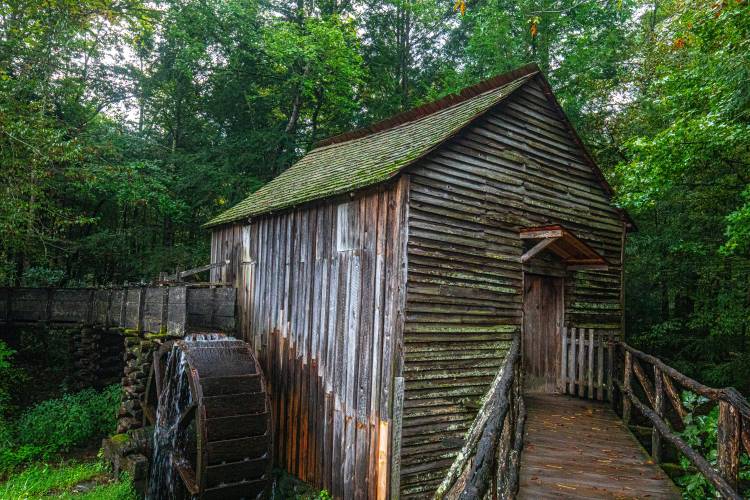
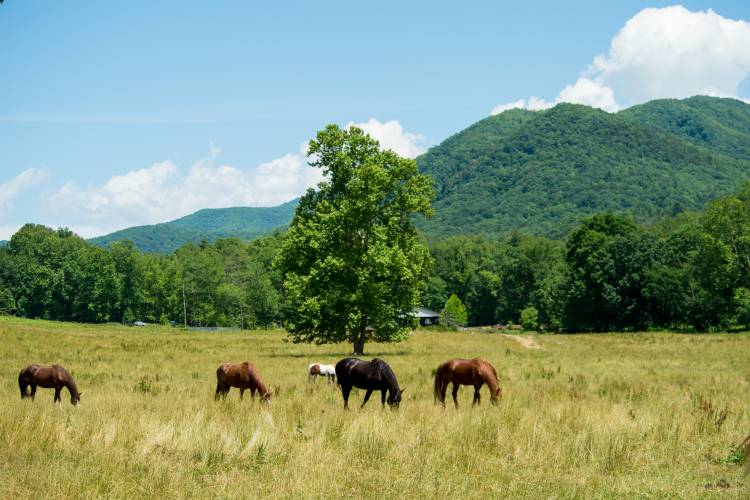
Primitive Baptist Church
The first of three churches in Cades Cove, Primitive Baptist Church is on the National Register of Historic Places and was the second church to be built in the cove. The church’s congregation halted worship in the church during the Civil War when their minister was forced to flee the area. They resumed service right after the war ceased.
Methodist Church
The next building on our Cades Cove map is the Methodist Church. Built in 1820, the church was constructed by the carpenter and eventual minister J.D. McCampbell.
Missionary Baptist Church
The next point of interest is the Missionary Baptist Church, built in 1839. The church was built when a portion of the congregation of the existing Baptist church split off to form a new church based on missionary work. In the springtime, you can just barely make out “Co. 5427” written out in daffodils to the right of the church. A member of the Civilian Conservation Corps planted them when the park’s trails were forged.
Cooper Road Trail
Named for Joe Cooper, a settler credited with mass improvements to the wagon road, Cooper Road Trail is a moderately easy, 10.9-mile hike that takes you to the Abrams Creek campground. The hike features gorgeous nature scenes and interesting geological features.
Elijah Oliver Place
Remember our friend John Oliver from the Oliver family cabin? Elijah Oliver was his son and this was Elijah’s home. Although Elijah fled the Oliver Cabin during the Civil War, he returned to this spot and called it home from then on.
Abrams Falls
Shortly after passing Elijah Oliver Place, you’ll find the trailhead of Abrams Falls Trail. As one of the most popular trails in the entire Smoky Mountains, the Abrams Falls Trail leads to a 20-foot waterfall whose ferocity is unmatched anywhere else in the park. The trail is approximately five miles roundtrip and moderately easy.
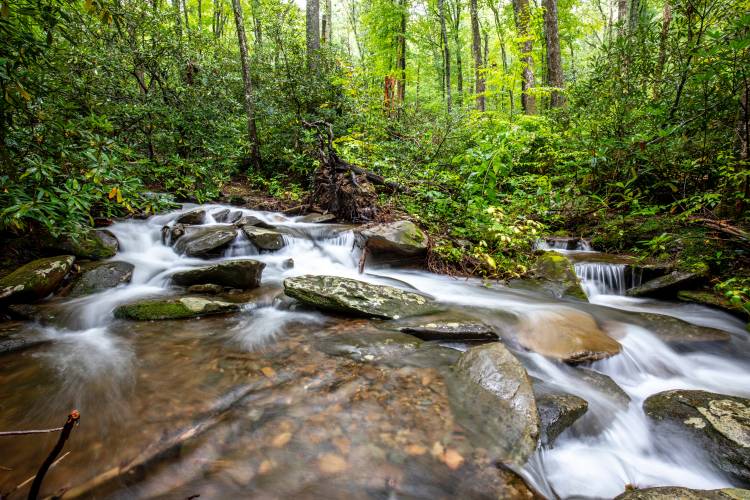
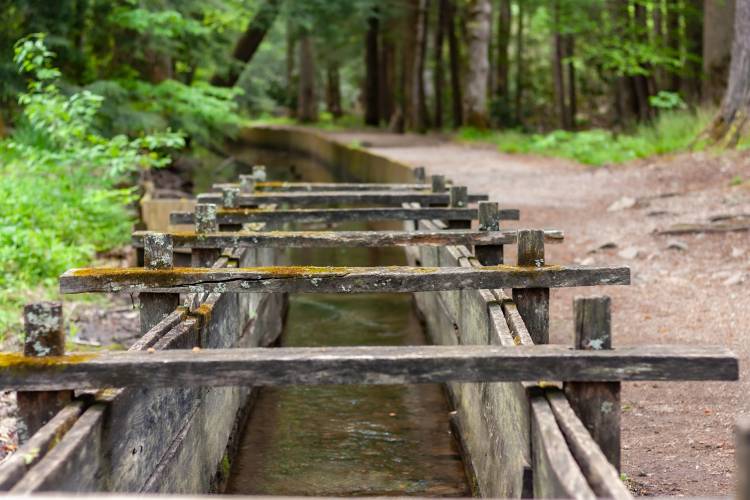
Cades Cove Visitor Center
Stop into the Cades Cove Visitor Center for a souvenir bag of flour from the grist mill, history books, and anything else you can imagine.
Cable Mill
This mill is worth the entire Cades Cove trip on its own, as Cable Mill is the only working grist mill in the Smoky Mountains. Historic buildings—barns, homes, a smokehouse, a blacksmith shop—are scattered around the mill as well, making this spot a worthy spot to stop for.
Henry Whitehead Place
Henry Whitehead Place was the third of its kind in the park to be forged from log home and frame home styles, inspiring the term ‘transitional’ home. It’s also the only home of its kind still standing.
Cades Cove Nature Trail
The next stop on our Cades Cove map is a trail known for its blooming dogwoods in the spring. The trail is short and ideal for Cades Cove drivers who want to stretch their legs.
Dan Lawson Place
What piques your interest at this destination is the brick chimney right there in the building. While chimneys of every kind are typical today, these were unheard of at the time. In fact, every single brick was produced right in Cades Cove. Other signs of remodeling are indicated by the addition of sawed lumber atop the originally fitted logs of the home.
Tipton Place
Owned by Colonel Hamp Tipton, his daughters Lucy and Lizzie inhabited the home in Cades Cove where the two worked as school teachers.
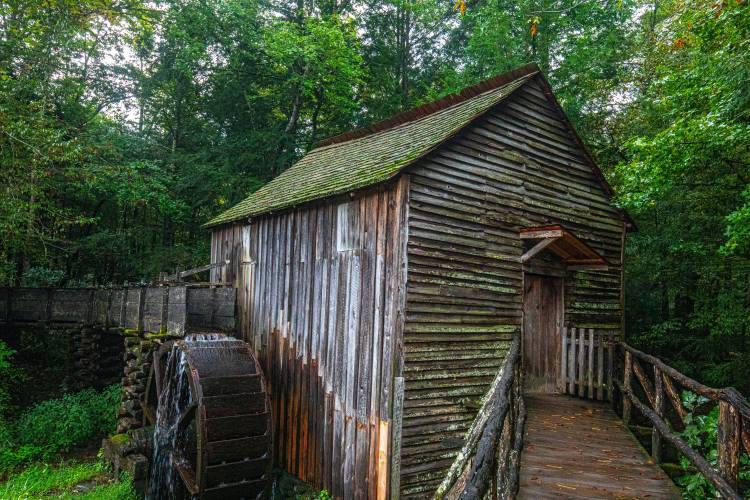
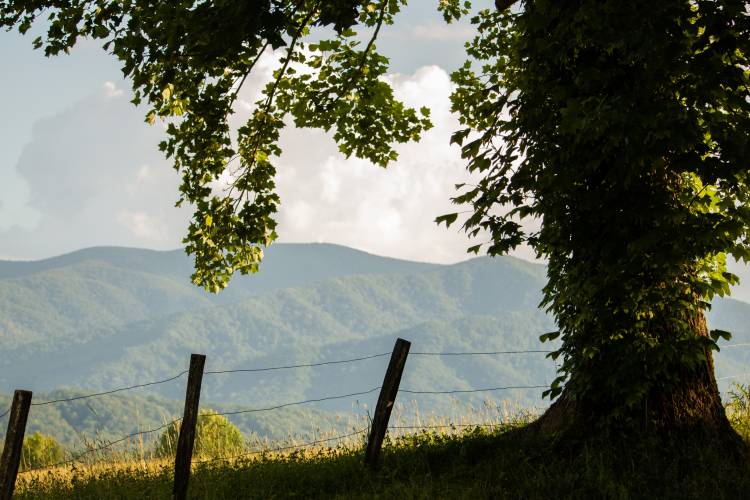
Carter Shields Cabin
The last historic building on the Cades Cove map is the Carter Shields Cabin. Wounded at the battle of Shiloh, Civil War veteran George Washington ‘Carter’ Shields called the Carter Shields Cabin home for only 11 years after returning from Kansas following the war.
Hyatt Lane and Sparks Lane
During your tour of Cades Cove, you will notice two roads that cut through the middle of the loop that are open to motorists. Both Hyatt Lane and Sparks Lane are useful if you and your family are running short on time, or if you would like to gain a different perspective of the views found in the area. For convenience, both of these roads are two-way routes.
For more detailed information about Cades Cove, visit the National Park Service.
